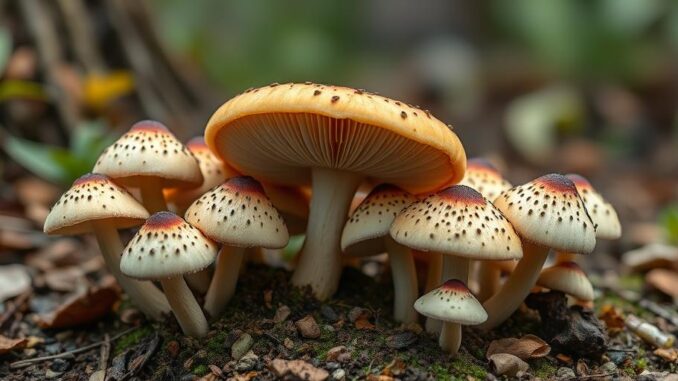
Summary
Psilocybin use is increasing, especially among individuals with mental health conditions. This rise correlates with decriminalization efforts and increased research into psilocybin’s therapeutic potential. However, experts urge caution and emphasize the need for responsible use and further research.
** Main Story**
Magic Mushrooms: More Than Just a Trend in Mental Health?
Okay, let’s talk about something that’s been popping up more and more in conversations lately: psilocybin, you know, the stuff in “magic mushrooms.” It’s seeing a real surge in popularity, especially among people dealing with mental health issues. And honestly, it’s hard to ignore the increasing buzz around decriminalization and the potential therapeutic uses. But is it really a game-changer?
The Rise of Psilocybin
Since 2019, we’ve seen a definite climb in psilocybin use, and it’s not just one age group. Young adults (18-29) and, surprisingly, even older adults (30+) are exploring it. This lines up pretty closely with the decriminalization movement that started in Denver, Colorado, back in 2019. Oregon jumped on board in 2020, and then Colorado expanded it statewide in 2022. Coincidence? I think not.
Plus, there’s been a noticeable shift in public perception. I mean, books like Michael Pollan’s “How to Change Your Mind” have definitely played a role, along with the increased media coverage. All of a sudden, people are talking about psilocybin’s potential for treating depression, anxiety, and addiction. It’s a pretty stark contrast to how it was viewed even just a few years ago.
A Closer Look at Mental Health
Here’s where things get a bit more complex, a lot of recent studies point to higher rates of psilocybin use among folks with existing mental health conditions or chronic pain. Now, this could mean some are trying to self-medicate, which, frankly, is a little concerning. It really highlights the need for better research, education, and access to safe mental healthcare. Like, yesterday.
That said, research on psilocybin-assisted therapy is promising. But experts rightly caution against unsupervised use. Psilocybin is potent; its effects can change significantly based on dosage, how sensitive you are, and the environment you’re in. And, let’s be real, potential psychological risks, especially for those with pre-existing issues, are nothing to scoff at.
I remember reading a case study a while back, about a young man with undiagnosed bipolar disorder, who’d taken mushrooms recreationally and it triggered a pretty severe manic episode. It was a stark reminder that this isn’t something to be taken lightly.
Responsible Use and The Road Ahead
It’s a bit of a double-edged sword, right? While psilocybin presents exciting possibilities, we can’t ignore the potential risks. Responsible use and continuous research have to be the focus. The good news is that current research indicates psilocybin, when carefully administered in a controlled setting and paired with psychotherapy, can be effective for certain mental health conditions. The results so far are promising.
More research is essential. We need to fully understand the long-term effects, optimal treatment protocols, and how psilocybin truly works. This, in turn, informs policy decisions about regulation and access. I mean, what would you rather have, a free for all or regulated controlled environments?
In the meantime, if you’re thinking about using psilocybin, talk to a healthcare professional first. Self-treating is never the answer.
A New Frontier: Addiction Treatment
And it’s not just mental health; the potential for treating addiction is another area of interest. Early studies suggest that psilocybin might help people overcome addictions, like alcohol or nicotine, by shifting their perspective and cognitive processes. It’s about rewiring the brain, in a way.
That said, we’re still in the early stages. More studies are needed to confirm these findings and establish safe treatment protocols. This isn’t, or at least shouldn’t be, a first-line treatment for addiction; psychedelics need to be used under strict medical supervision.
The Future of Psilocybin
The increased interest in psilocybin, especially among those with mental health struggles, marks a turning point in mental healthcare and addiction treatment. As we continue to explore its therapeutic potential, we have to prioritize responsible use, education, and ongoing research. It’s the only way to ensure we can integrate this powerful tool into mainstream healthcare, safely and effectively. I think the journey has only just begun.


Be the first to comment